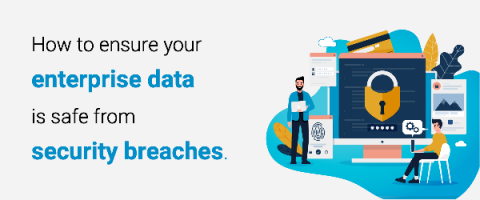Security | Threat Detection | Cyberattacks | DevSecOps | Compliance
%term
Integrating Attack Behavior Intelligence into Logstash Plugins
Developing Immunity: IT Security in the Era of Remote Working
The CSA IoT Security Controls Framework
The Internet of Things (IoT) is growing in technical, social, and economic significance. ENISA defines the increasingly complex IoT systems as “cyber-physical ecosystem[s] of interconnected sensors and actuators, which enables intelligent decision making.” These technologies collect, exchange and process data in order to dynamically adapt to a specific context, transforming businesses and the way we live.
2020 State of the Cloud Statistics
The cloud had become mainstream during the last couple of years, but the year of 2020 has pushed companies to adapt to remote working, which immediately led to a rapid adoption of cloud services. Research indicates that overall use of cloud services across industries has already increased by 50% this year; the most serious effect from the shift to remote working was on cloud-based collaboration tools, which saw an increase of up to 600% in usage (McAfee).
Expanding Your Cybersecurity Skills when You Are No Longer a Beginner
It’s easy to find resources for getting started with cybersecurity — but far harder to find ones designed for people who are already working as cybersecurity professionals. To help, we’ve collected some great options for advancing your skills.
What are Security Misconfigurations and how to prevent them?
Misconfigurations are often seen as an easy target, as it can be easy to detect on misconfigured web servers, cloud and applications and then becomes exploitable, causing significant harm and leading to catastrophic data leakage issues for enterprises like the 2019 Teletext exposure of 530,000 data files which was caused by an insecurely configured Amazon Web Service (AWS) web server.
Elastic Security opens public detection rules repo
At Elastic, we believe in the power of open source and understand the importance of community. By putting the community first, we ensure that we create the best possible product for our users. With Elastic Security, two of our core objectives are to stop threats at scale and arm every analyst. Today, we’re opening up a new GitHub repository, elastic/detection-rules, to work alongside the security community, stopping threats at a greater scale.
Rebuilding our API Call Logging Feature from Scratch
Bearer is shedding its winter coat. As we stayed safe at home during the COVID-19 crisis, it gave us the opportunity to think about our vision for the API Monitoring industry. Today, we are releasing a brand-new dashboard, a rebuilt navigation, and improvements to many of our existing features. But one change is quite big, as it is changing one of the core features of our product. We have completely rebuilt the way API call logs are managed in Bearer.
The missing link to comprehensive endpoint security
Very few things available online are truly free of cost. If you don’t pay with cash, chances are you are paying with your personal information or other data. The Chrome web store is filled with free extensions that users install on their browsers to enhance their online experience. However, more and more of these extensions are being discovered and removed from the store due to their malicious intent.










